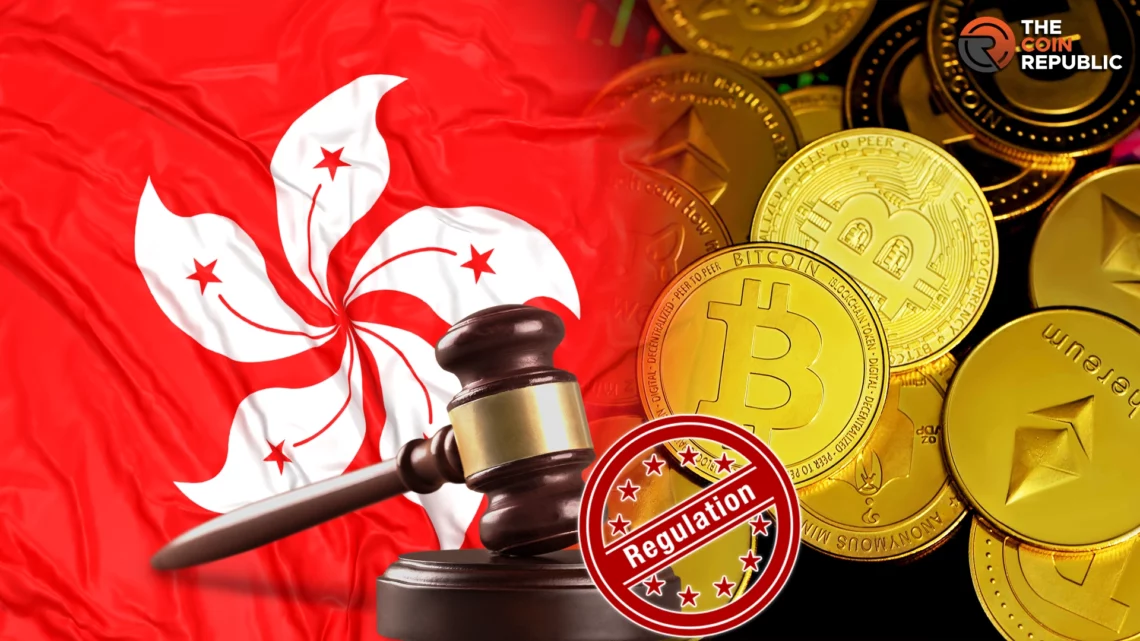Hong Kong is considering a novel regulatory strategy to balance monitoring and innovation as the global crypto environment evolves.
The Hong Kong Securities & Futures Professionals Association (HKSFPA) recently proposed forming a self-regulatory body of industry actors to oversee compliance and encourage the growth of the city’s virtual asset sector.
This plan addresses growing concerns about Hong Kong’s competitive edge as an international financial hub while meeting the industry’s monitoring needs.
The Call For Self-Regulation
In an April 22 recommendation letter, the HKSFPA highlighted the need for an organization dedicated to nurturing the overall growth of Hong Kong’s financial market industry. According to the association, the city’s financial sector must focus more on supervision, with no entity dedicated to holistic industry development.
To address this perceived imbalance, the HKSFPA proposed the formation of a statutory self-regulating institution comprising representatives from various sectors, including the futures, asset management, and virtual asset industries.
The proposed self-regulatory body would operate under the oversight of the Securities & Futures Commission (SFC), with the regulator retaining its authority over market conduct supervision.
However, licensing powers would be delegated to the industry-led committee, enabling a more nuanced and industry-driven approach to compliance and regulatory oversight.
Balancing Oversight & Innovation
Hong Kong’s support for self-regulation in the cryptocurrency industry mirrors a broader trend of balancing control with innovation.
The HKSFPA’s recommendation demonstrates the city’s determination to maintain its standing as an international financial center while adapting to the changing world of virtual assets.
However, the demand for self-regulation coincides with increased international attention to cryptocurrency governance. Current events in places like Lithuania serve as a sobering reminder of the possible consequences of insufficient regulation in the cryptocurrency sector. Regulatory measures are being implemented in reaction to financial malfeasance and gaps in compliance.
Regulatory Landscape and Industry Developments
Despite these issues, Hong Kong’s regulatory approach has been more liberal than other jurisdictions.
On April 15, the SFC approved spot Bitcoin and Ether exchange-traded funds (ETFs) for issuers, including Harvest Fund Management, Bosera Asset Management, and China Asset Management (ChinaAMC).
Additionally, the regulator has granted formal virtual asset licenses to crypto exchanges like Hashkey and OSL, illustrating the city’s willingness to embrace crypto innovation.
In contrast, the United States Securities and Exchange Commission (SEC) has yet to approve a spot Ether ETF or issue special licenses for crypto exchanges to register, and the future for such approvals is uncertain.
Conclusion
As Hong Kong navigates the world of cryptocurrency legislation, the call for self-regulation brings opportunities and obstacles. The city hopes to balance regulatory inspection and market innovation by encouraging industry-led oversight systems.
For the stability and integrity of Hong Kong’s cryptocurrency ecosystem, cooperation between regulatory bodies and industry players will be necessary for this strategy to succeed.
Hong Kong’s embrace of self-regulation may be a unique example for other jurisdictions looking to balance monitoring and innovation in the virtual asset sector as the global crypto business develops.

Steefan George is a crypto and blockchain enthusiast, with a remarkable grasp on market and technology. Having a graduate degree in computer science and an MBA in BFSI, he is an excellent technology writer at The Coin Republic. He is passionate about getting a billion of the human population onto Web3. His principle is to write like “explaining to a 6-year old”, so that a layman can learn the potential of, and get benefitted from this revolutionary technology.


 Home
Home News
News






